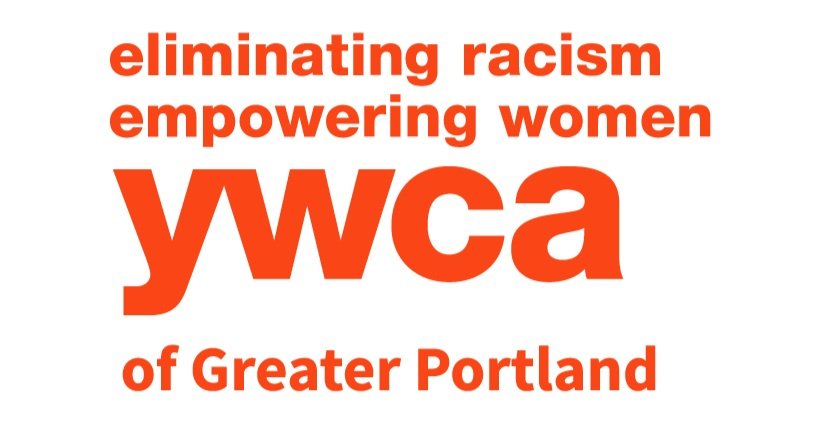Family Preservation Project
As of August 1st, the Family Preservation Project will be taking an exciting opportunity to transition their work to the Ostara Initiative, a peer-led organization with a national scope and deep alignment with their work with incarcerated parents. This transition has been planned and executed in partnership with FPP and Ostara Initiative staff, as well as an advisory group made up of funders and community partners committed to the success of FPP.
YWCA’s Partnership with FPP
First established in 2004, FPP partnered with YWCA in 2015 to help streamline the administration of state funding.
Over the last decade, the program has significantly expanded their services and advocacy efforts. They worked with the Oregon legislature to create and pass the first state Bill of Rights for Children of Incarcerated Parents in the country. They successfully advocated for the passage of the Better Beginnings for Babies Bill, which guarantees that every incarcerated mother has access to culturally specific doula support, pre- and post-natal healthcare, and the right to give birth free of handcuffs.
In FY 2026, FPP will become part of the Ostara Initiative, a peer-led organization working to transform systems by reimagining justice, advancing health, and reclaiming dignity in our nation’s policies and practices for all pregnant and parenting people. We are thrilled the program has reached this milestone, and can’t wait to see what they accomplish in the years to come.
About the Ostara Initiative
The Ostara Initiative began as a fiscally sponsored program in 2004, as a direct response to the specific needs of pregnant and parenting women in prison. Awarded 501(c)3 status in 2019, the Ostara Initiative has expanded programming to doula programs in nine correctional facilities over two states, and created programs designed to grow representative leadership, reversing the mass incarceration of mothers in America. FPP’s partnership represents the next step in expanding their capacity.
All FPP staff and programming will be transitioning to Ostara on August 1st, 2026. We will continue to partner with the program and the Ostara Initiative in the future. If you have any questions about the transition, please feel free to ask via email or at our all staff meeting on Monday.
We are so excited for the FPP team as they take on this next phase of their work!
New FPP website
Family Preservation Project (FPP) promotes individual and system level change to reduce the collateral consequences of parental incarceration on children, families, and the community.
FPP strengthens families and communities by assisting incarcerated women as they become rooted in their identities as mothers, promoting the rights of children of incarcerated parents, and providing trauma-informed services designed specifically for each parent’s unique needs.

Because keeping families together improves generational, educational, and occupational outcomes
FPP Direct Service Programs ↘
FPP provides direct service programs, three of which operate inside Coffee Creek Correctional Facility (CCCF) in Wilsonville, OR.
-

Intensive Family Reunification
Includes therapeutic visitations with children; parenting support and education groups; intensive individual transition planning; caregiver support; wrap-around support for children and families; family meetings; parent-teacher conferences; and, biopsychosocial assessments
Children of incarcerated mothers receive 50% fewer visits than children of incarcerated fathers. With FPP, children have increased opportunities to meaningfully connect with their incarcerated mothers.
-

Family Resource Center
Includes individual and group-based support services, juvenile and family law support, and addresses barriers to connection with children, families, and professional services.
84% of incarcerated moms had at least one child living with them before incarceration.
-

Re-entry Program
Our peer advocates meet women releasing from prison with warmth and assistance. This program provides re-entry necessities, including hygiene supplies, clothing, and a backpack or tote as well as emotional support.
-

Youth Advisory Council
Comprised of kids of incarcerated parents, this advocacy group passed the Bill of Rights for the Children of Incarcerated Parents in Oregon’s state legislature (2017) and continues to impact policy.
68,000 children in Oregon have had at least one parent that has been incarcerated.
-

Alumni Association
An intentional community centered around shared lived experiences, offering mutual aid and support, and celebrating successes big and small.
Peer support outcomes included increased self-esteem and efficacy, sense of control, empowerment, hope, belief in bringing about change in their lives, sense of belonging, and social support.

Bill of Rights for Children of Incarcerated Parents
→
Bill of Rights for Children of Incarcerated Parents →
In 2017 after advocacy by our FPP team and alumnae, the Bill of Rights for Children of Incarcerated Parents was passed unanimously by the legislature, making Oregon the first state to recognize the rights of this vulnerable population.

Key Dates in FPP’s History
Family Preservation Project (FPP) on Film
Family Preservation Project
YWCA Program Highlight
Hear from Vanessa, YWCA’s Reentry Program Coordinator and Mothers who have graduated the FPP program.
Like a Shield
A film by Brian Lindstrom
Like a Shield features children that have participated in FPP. Highlights the unintended consequences of parental incarceration on children and why the Bill of Rights for Children of Incarcerated Parents is needed to help address the trauma and negative health and social outcomes for children affected by parental incarceration.
Mothering Inside
A film by Brian Lindstrom
Mothering Inside follows the women and children of the FPP at Coffee Creek Correctional Facility in Wilsonville, Oregon over the course of a year. FPP works to re-establish healthy bonds between inmate moms and their children. Midway through filming, the Oregon Department of Corrections announced plans to cut FPP. After an intense public outcry, spurred in part by screenings of an earlier version of the film, Oregon Governor Kate Brown signed legislation that funds FPP for two years.




